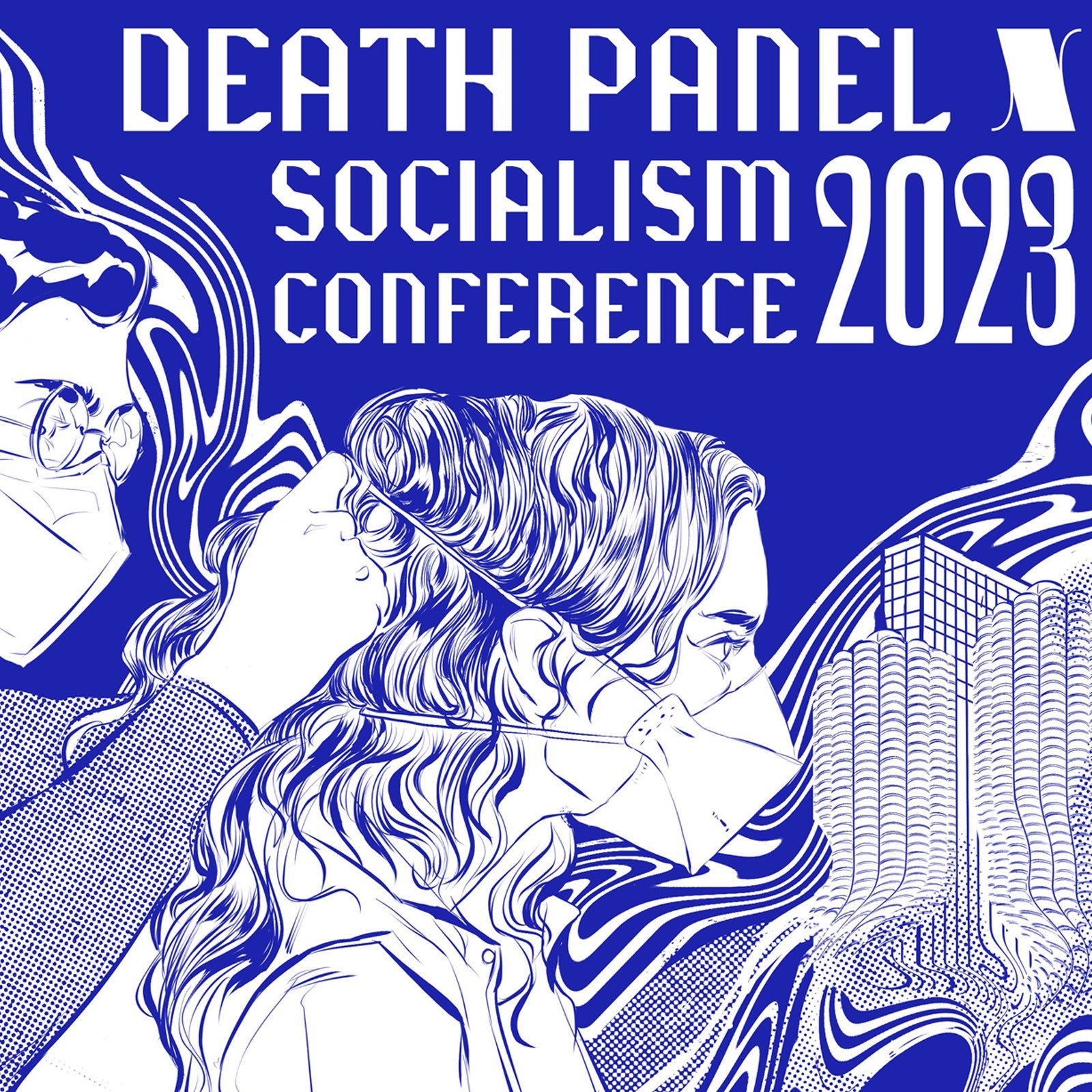Transcripts
Our goal on Patreon is to reach 2500 patrons—at which point we can afford to have regular transcripts available for all main feed episodes. For now, transcripts are available for select episodes, and we are slowly working on catching up on the back catalogue and reducing the amount of time it takes for us to finish a transcript and post it.
At the moment our capacity to offer transcripts of Death Panel is limited. This is due to Beatrice’s disability, and the conflicting access needs that exist with regard to editing/correcting transcripts and her low vision/blindness. The labor of producing transcripts is usually poorly compensated and historically is often done by disabled people due to the flexibility and availability of working on transcription from home. We are committed to making the show accessible and paying our transcript makers a fair wage.
If you would like to help us reach our goal, then please become a patron and support our work to make the show more accessible.

"The Wheelchair-to-Warfare Pipeline" w/ Liz Jackson and Rua Williams (04/11/24)
Death Panel podcast host Beatrice Adler-Bolton speaks with Liz Jackson and Rua Williams about the history and ongoing practice of design objects ostensibly created for accessibility being repurposed into tools of war.

DP x S23: Decolonial Disability Politics and the Left (Session 4)
Death Panel podcast collaborated with the organizers of the Socialism Conference to put together five sessions at this year’s conference on the political economy of health and disability. In this session, "Decolonial Disability Politics and the Left" Death Panel podcast co-hosts, Beatrice Adler-Bolton and Jules Gill-Peterson, are joined by theorist, Jasbir Puar, and Shira Hassan, who has spent decades building, documenting and participating in systems of change and support outside of the societal frameworks of oppression and exploitation. This session explores the links between disability, debility, and empire: how neoliberal framings of disability structurally exclude people disabled by ongoing colonialism and global/national/local schemes of extraction, and how to expand our conceptions of debility, disability, and capacity to include populations that don’t fit within tidy frameworks of pride and respectability.
